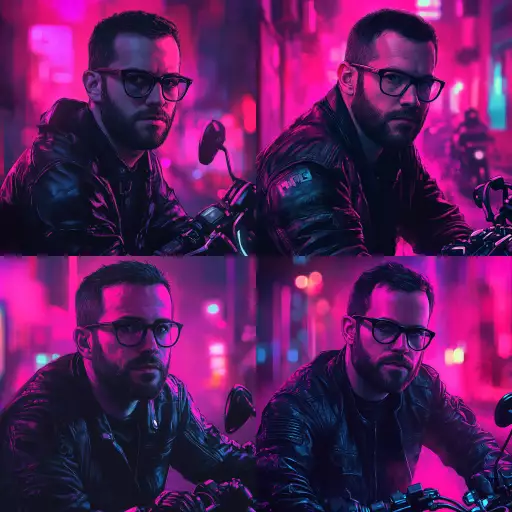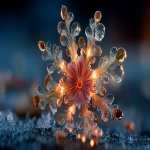Explore the Best AI Image Gallery

Quantum Creativity: Where Computing Meets Imagination
The realm of technology is constantly evolving, pushing boundaries and reshaping industries. One of the most exciting frontiers is quantum computing, a paradigm shift promising unprecedented computational power. While its implications for fields like medicine and materials science are widely discussed, its potential impact on the creative industry is only beginning to be explored.
Quantum Leap in Creative Expression
Imagine artists using quantum algorithms to generate breathtakingly intricate designs, composers crafting symphonies guided by quantum principles, and writers exploring new narrative structures powered by quantum simulations. This isnt science fiction; its the future of creative expression.
Unleashing New Artistic Possibilities
- Generative Art: Quantum computers can generate complex, unique patterns and visuals beyond human imagination, leading to entirely new art forms.
- Interactive Experiences: Imagine immersive installations where quantum algorithms respond in real-time to audience interactions, creating personalized and evolving artistic experiences.
- Sound Design Revolution: Quantum simulations can model sound waves with unprecedented accuracy, allowing composers to create novel soundscapes and musical textures.
The Ethical Canvas: Navigating Uncharted Territory
While the potential of quantum creativity is vast, it also raises ethical considerations that need careful attention:
Ownership and Authenticity
Who owns the copyright to art generated by a quantum algorithm? How do we define authenticity in a world where creativity is influenced by complex computations?
Bias and Representation
Quantum algorithms are trained on data, which can reflect existing societal biases. Its crucial to ensure that quantum-generated creative outputs are inclusive and representative of diverse perspectives.
Access and Equity
The high cost of quantum computing could create a divide between those who can afford to harness its power and those who cannot. Efforts should be made to ensure equitable access to this transformative technology.
Quantum Futures: Trends Shaping the Creative Landscape
As quantum computing continues to develop, several trends will shape the future of creative industries:
Hybrid Creativity:
Well see a fusion of human and quantum creativity, with artists leveraging quantum tools to enhance their workflows and explore new artistic frontiers.
Democratization of Creation:
User-friendly quantum platforms will empower individuals to participate in creative processes, regardless of their technical expertise.
Quantum Storytelling:
Interactive narratives driven by quantum algorithms will create immersive and personalized storytelling experiences, blurring the lines between reality and fiction.
The intersection of quantum computing and creativity is a fertile ground for innovation. As we navigate this uncharted territory, its essential to embrace both the possibilities and the challenges with a thoughtful and ethical approach. The future of art, design, and storytelling will be shaped by the harmonious collaboration between human imagination and the extraordinary power of quantum computing.
